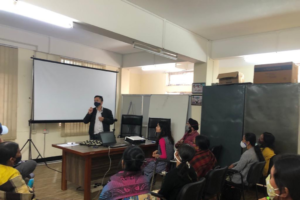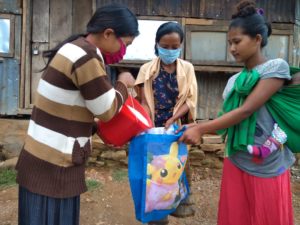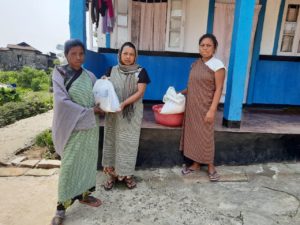Preserving Tradition: Participants exchange seeds to increase diversity
Seeds and other planting materials are the basis of crop production. For years, indigenous farmers have saved, managed, and propagated local seed varieties in the different production systems. This informal seed system is built on the biodiversity of the landscape and the varieties are time tested and well adapted to the local environment.
In the effort to address the growing threat to our seed system, the North East Slow Food and Agrobiodiversity Society (NESFAS) in collaboration with three Participatory Guarantee Systems (PGS) groups of Nongtraw organized a Community Seed Fair at Nongtraw community on Thursday (February 18, 2021).
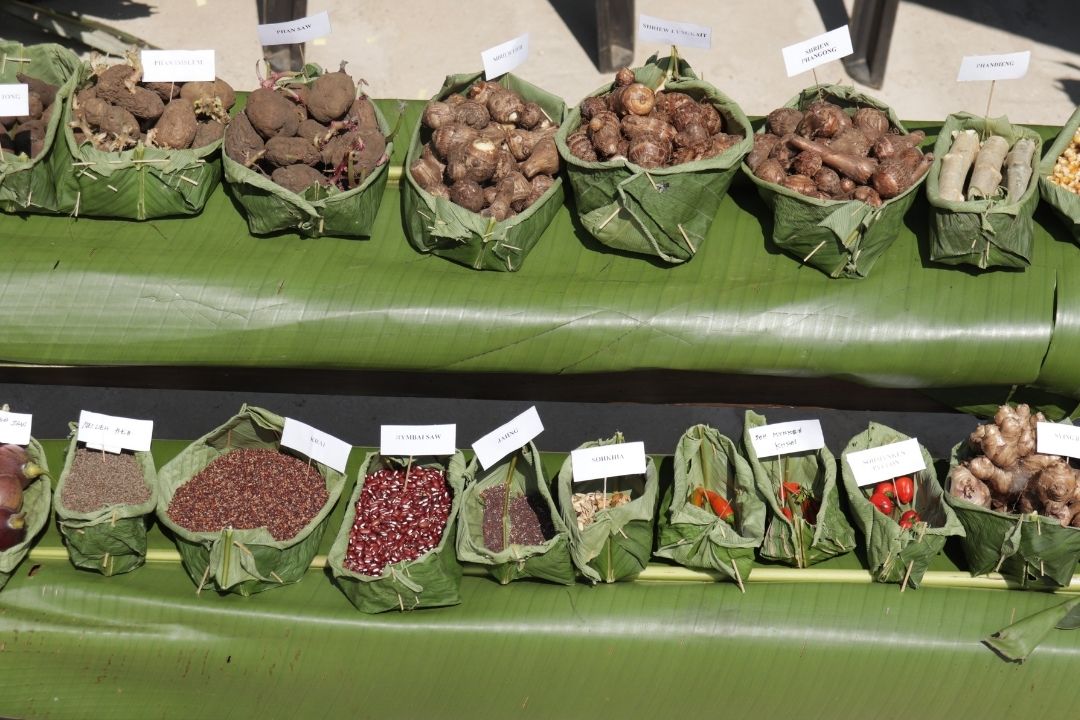
The fair is an initiative of the Rural Electrification Corporation Foundation (REC)-funded project ‘No One Shall Be Left Behind Initiative’. It may be mentioned here that all government SOPs and safety protocols were strictly followed throughout the programme.
Eight communities participated in the fair namely, Laitumiong, Laitsohpliah, Lad Mawphlang, Dewlieh, Nongtraw, Mawmihthied, Mawkma, Nongpriang, and Mustoh (Laitkroh C&RD Block and Shella C&RD Block, East Khasi Hills). The communities showcased 50 indigenous seeds at their stalls. The seeds have been saved by their ancestors of some community members, foraged from the nearby forests, and harvested by custodian farmers of the communities.
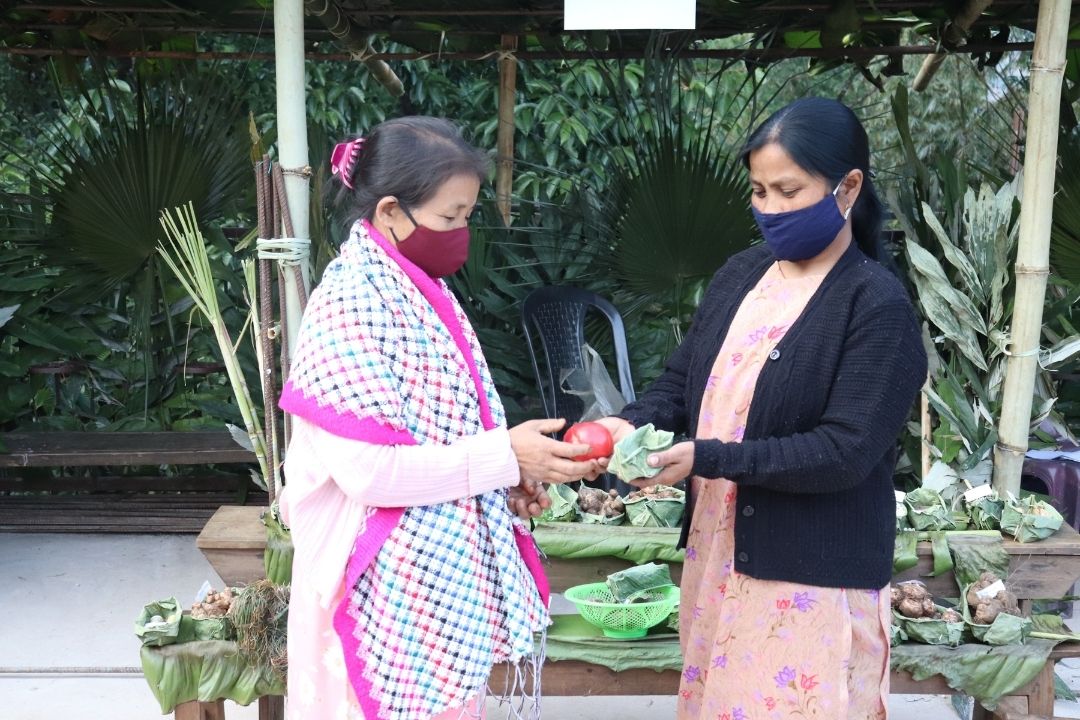
Gavin Miguel Mylliemngap, MLA Sohra Constituency who graced the occasion as the chief guest, said, “We are happy to familiarise ourselves with the many communities around this region, especially through NESFAS. The organisation is working towards enhancing the farming systems by going back to the traditional methods as opposed to the long-existing (Green Revolution) farming systems.”
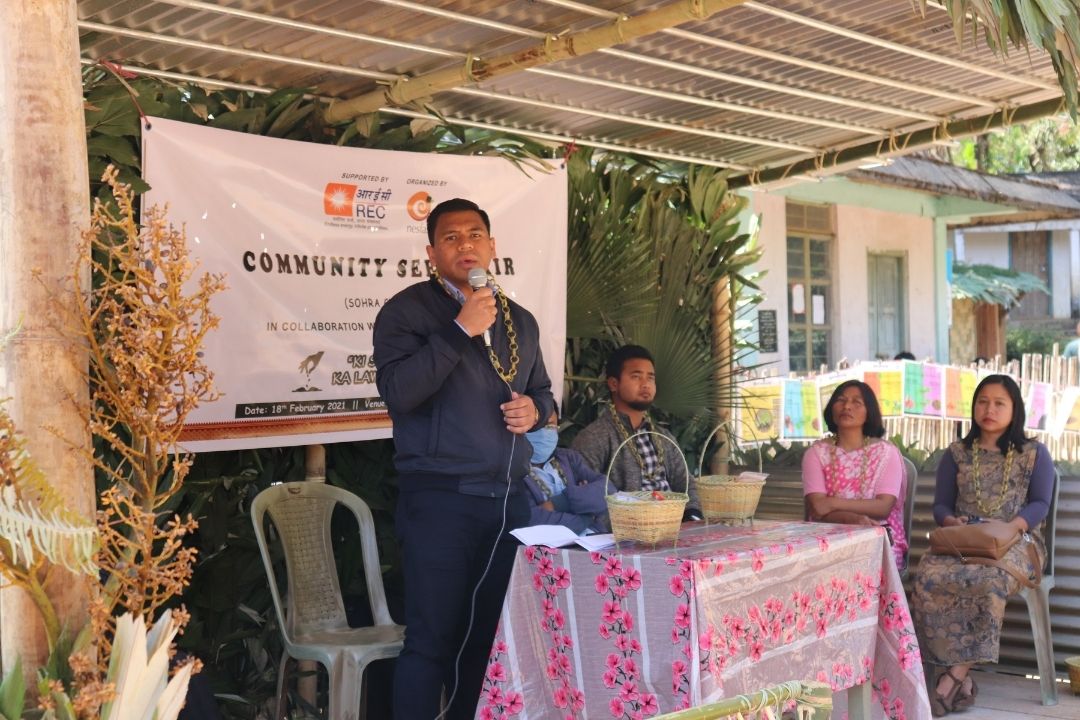
Members of the Iatreilang PGS, Ryntihlang PGS and Kyntiewlang PGS groups who helped organized the seed fair collectively said the fair aims to connect farmers and help pave a way for them to show and exchange seeds from their respective communities. Seed fairs are one of the many opportunities for farmers from different communities to gather discuss not only seeds but also exchange knowledge about their local practices.
Community Seed Systems ensure the local seed requirements of farmers and are strengthened by seed exchanges among farmers and communities and also exchange of knowledge associated with it. However, over the years, the growing focus on mono-cropping, declining interest in agriculture, the introduction of high yielding, and other factors are contributing to the gradual decline in traditional seed varieties.
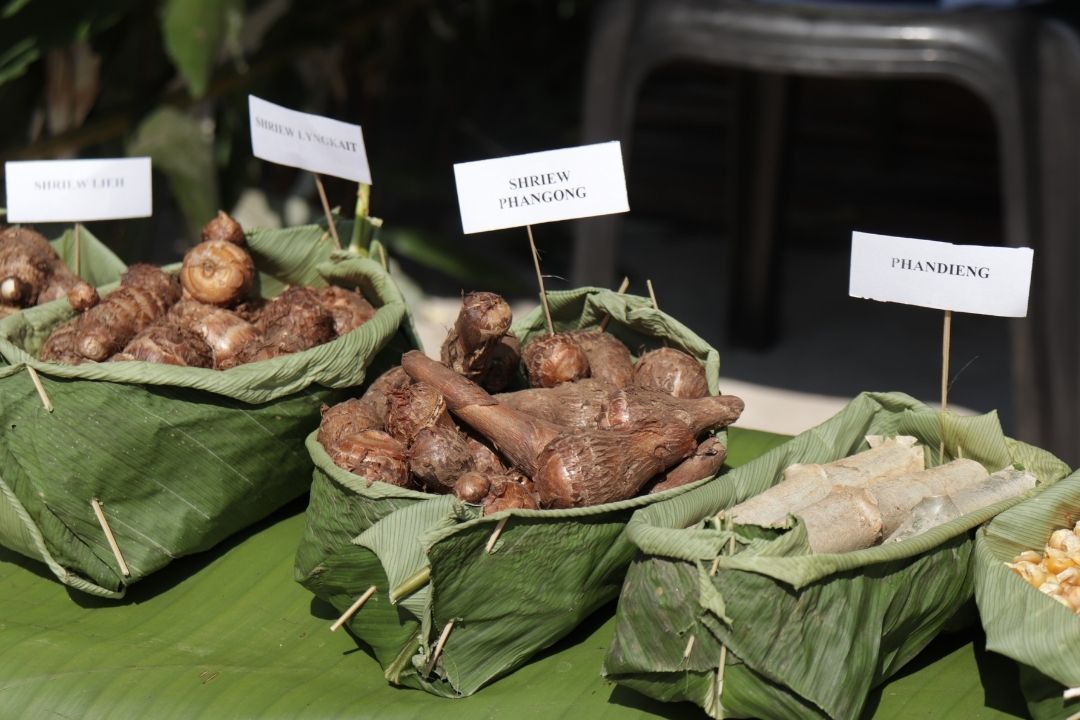
Mewan Kharsyntiew, Programme Engineer, Regional Office REC (Shillong), said that the staff of the regional office in Shillong has all learned from NESFAS about farming and traditional food systems. He added, “Farming and traditional food systems are not topics that we deal with directly and are in our field, thereby, we learn a lot from this project that we are collaborating with NESFAS.”
On the other hand, Executive Director of NESFAS Pius Ranee said, “Farming communities across the state face problems with production because eventually, they turn to chemicals and other resources to increase yield. But, we at NESFAS, we are working with the communities to address these issues and come up with local/indigenous solutions concerning farming.”
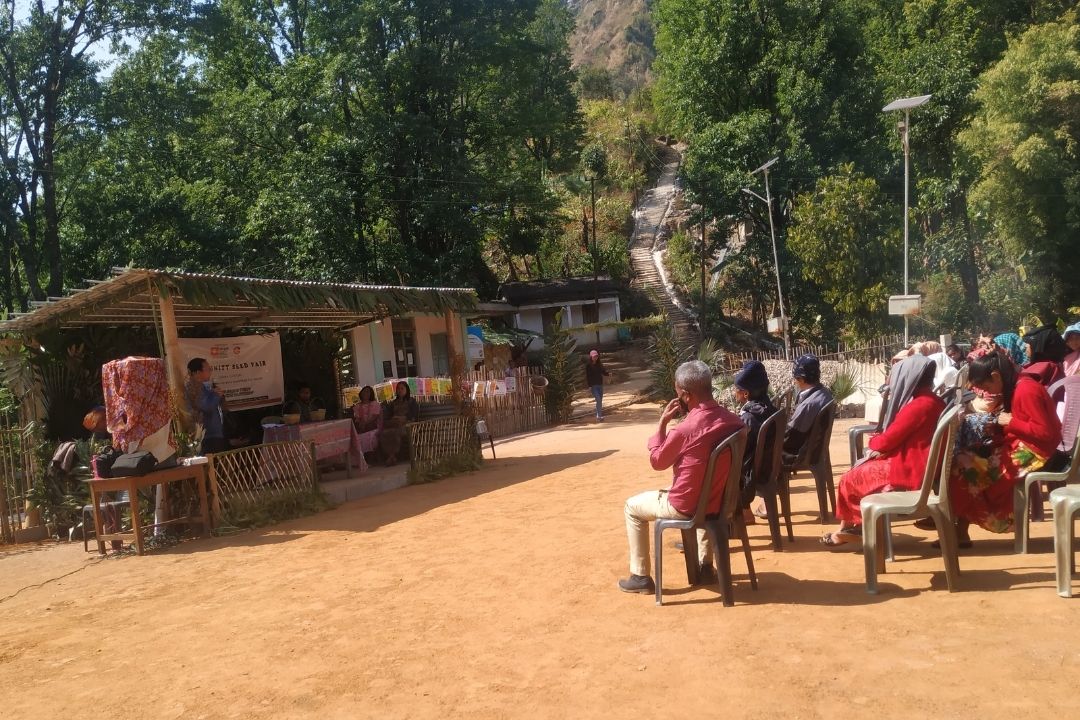
After the formal programme, NESFAS Associate (Agroecology) Gratia E Dkhar held a workshop on seed, pest, and soil management at the same venue where she hosted A farmer-to-farmer exchange knowledge session. The farmers were divided into groups and asked to discuss various issues and best practices of soil fertility management pests, seeds, and soil erosion.

